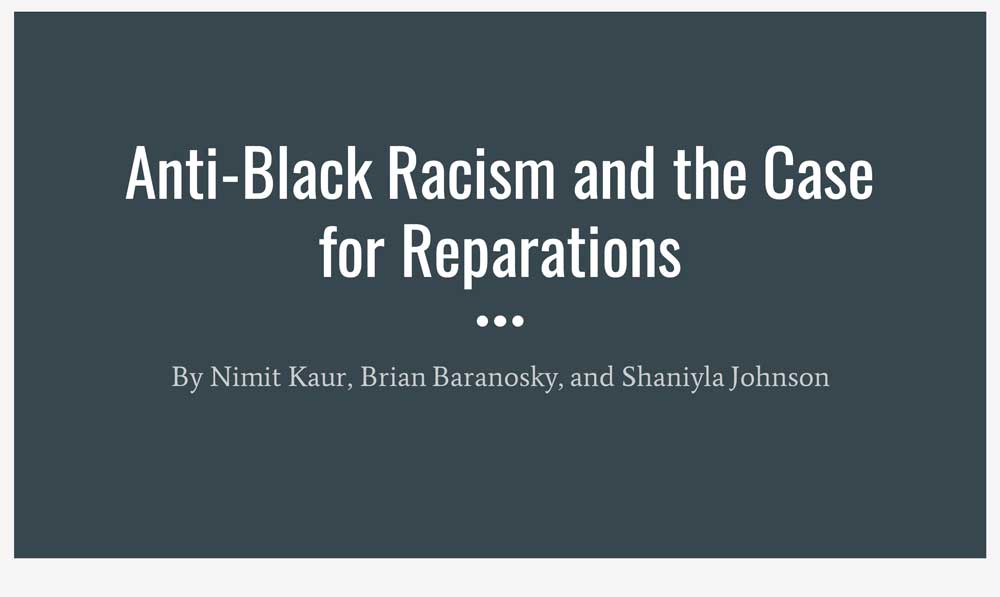Brian Baranosky ’21, Shaniyla Johnson ’22, and Nimit Kaur ‘21
Majors: Criminal Justice and Sociology (Brian), Urban Studies (Shaniyla), and Sociology (Nimit)
Minor: Legal Studies (Brian)
Faculty Mentor: Dr. Chinyere Osuji, Assistant Professor of Sociology
Abstract
Anti-Black Racism and a Case for Reparations is a research paper that has three main sections. Section one discusses why anti-black racism exists in the United States and takes a dive into the history of anti-black racism throughout the history of the country. The first section starts with the creation of the nation and extends to the period of the Civil Rights Act, and talks about how anti-black racism has been present and entrenched since the country’s inception. Section two of the paper examines how anti-black racism is reproduced today in the United States. This section of the paper looks at major historical and recent events in the country, and explains how anti-black racism played a part in the outcomes of people and communities. Section two of the paper discusses the disparities felt by the African American community in major events like the Great Depression and the recent COVID-19 pandemic. The last section of the paper is a plan for modern-day reparations, which contains four major pillars. The first pillar is the legalization of marijuana to help end the War on Drugs and Mass Incarceration of African Americans. The second pillar is based on restorative justice, which changes the goal of incarceration to rehabilitation instead of punishment. The third pillar is subsidized homeownership and repairs to help encourage homeownership and restructure local budgets to support the people and offer opportunities. The last pillar for modern reparations includes free college education, which is meant to make college more accessible and less damaging to graduates’ financial situations.
Preview

